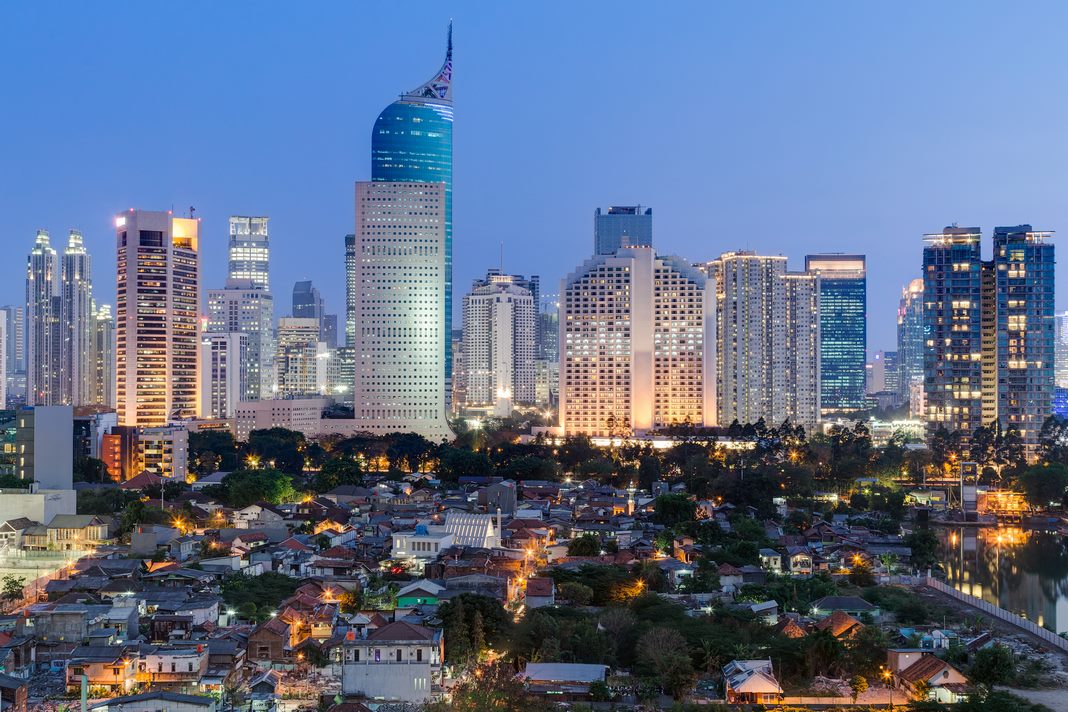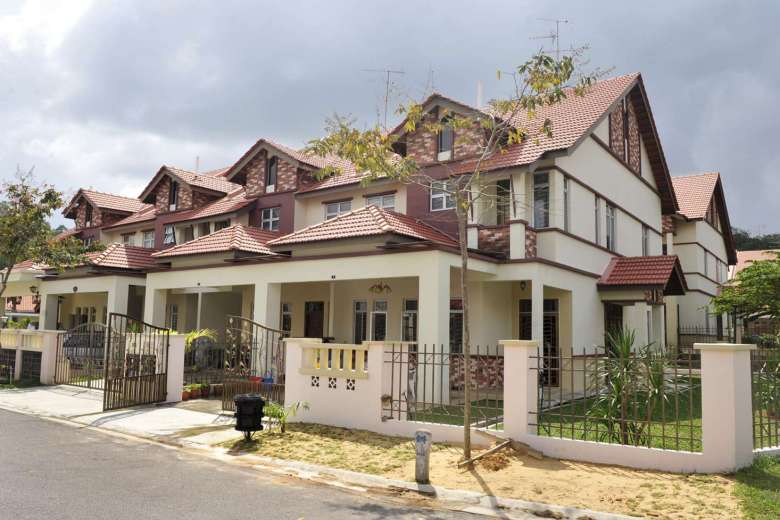
Before we take a look at the requirement of obtaining a residency and employment visa of Indonesia, let us first look at the different types of resident visas issued by the government of Indonesia. Ideally there are four types of resident visas issued by the government of Indonesia:
VITAS or VBS: This is a limited-stay visa or semi-permanent residence visa. Ideally a foreigner hired by an Indonesian company is given a VITAS while still in their home country. This is extended to the worker’s spouse and children and is issued after a work permit has been authorised. When a foreign worker and his family arrive in Indonesia, immigration procedures change the VITAS visa to a KITAS visa.
Kartu Izin Tinggal Terbatas (KITAS): This resident visa is valid for six months to one year. A KITAS Visa is the most common visa for foreign residents and requires an Indonesian sponsor. Valid for five years in total, it is first valid for one year and must subsequently be extended every 12 months. One should remember that even if the applicant is married to an Indonesian citizen, a KITAS visa cannot be obtained directly by a foreign spouse, regardless of whether the marriage took place in Indonesia or abroad and the applicant must first get an appropriate visa before applying for a KITAS Visa. The application must be made at the local Department of Immigration where the applicant and sponsor are living.
Kartu Izin Tinggal Tetap (KITAP): Also known as the Permanent Residency Permit this visa is valid for five years; after the first period of five years, it can be extended for four more consecutive five-year periods, and is valid for 25 years in total. A KITAP Visa requires a sponsor, and is most often given to foreigners who are married to Indonesian citizens and who plan on living in Indonesia permanently.
Retirement Visa: This visa is issued to foreign nationals over the age of 55. The details of this visa have been discussed in detail in another article.
APPLYING FOR AN INDONESIAN RESIDENT VISA:
The first step to obtain an Indonesian resident visa is to get a sponsor which is a requirement for all residency visas. Visas can be obtained through sponsorship in the following ways:
- From an Indonesian citizen who is a sponsor
- From a company owned and operated by Indonesians
- From an Indonesian institution, public or private
- From foreign-owned companies with a licence to operate in Indonesia
In the case of an Indonesian citizen who is a sponsor, it is the Indonesian sponsor who asks for a residency visa for a foreigner. The sponsor usually has to submit the required documents, with or without the sponsored party. For foreigners who marry Indonesian citizens, they are not liable to automatically live in Indonesia. They are still required to apply for a residency visa, with the Indonesian spouse acting as sponsor. At first, a foreign spouse is given a KITAS visa. After two extensions, a KITAS visa holder is eligible for a KITAP visa.
The applicant for a KITAS Visa can also be group sponsored. A group sponsor includes government, business, religious organisations, or any other Indonesian institution. They are responsible for all visa paperwork, as well as being legally responsible for the sponsored foreigner.
Meanwhile, for a work permit, which is also known as Ijin Mempekerjakan Tenega Kerja Asing (IMTA), the Indonesian business must first get the authorisation to hire a foreign personnel. The company applies for the permit and is granted a work permit. The IMTA is in the new employee’s name, but is issued to and held by the company itself. Once the IMTA is issued, the company then will need to apply for a foreigner employee’s work permit and visa prior to employment, and is responsible for filling out and submitting all the required paperwork. Then the company applies for a VITAS visa (Limited Stay Visa for Foreign Workers) on behalf of the employee. The employee goes to the Indonesian Consulate in their home country and has their passport stamped. The VITAS visa is a temporary visa, and only allows a foreign worker and family to enter Indonesia legally. Once they are in Indonesia, they must go to the local Department of Immigration within three working days to have their VITAS visa changed to a KITAS visa.
ELIGIBILITY CRITERIA FOR A KITAS VISA:
The following people are eligible for a KITAS Visa, and may either have a group sponsor or a personal sponsor:
- Foreign investors doing business with the Indonesian government or Indonesian companies
- Foreigners invited to work with the Indonesian government or private institutions
- Foreigners working in religious organisations and fulfilling religious duties
- Foreigners authorised to train in Indonesia or carry out scientific research
- Foreign spouses who are visiting or living with their Indonesian husband or wife
- Minors who join their Indonesian parent or a foreign-national parent who resides in Indonesia and who already has a valid KITAS Visa
- Former Indonesian citizens seeking repatriation.
DOCUMENTS REQUIRED FOR A KITAS VISA:
- Passport
- Birth certificate
- Curriculum Vitae with work references
- Immunisation card
- Marriage certificate if married to an Indonesian national
- Indonesian sponsor’s National ID card (Kartu Tanda Penduduk – KTP)
- Four 2×3 cm size photographs with red background
- A KITAS Visa fee must be paid (Rp 700,000 for a one year visa and Rp 350,000 for a six month visa).
BLUE FOREIGNERS’ REGISTRATION BOOK (BUKU MUTASI):
During the application procedures for the KITAS visa, the applicant also needs to register with Immigration’s Department for the Supervision of Foreigners, and should apply for a Blue Foreigners Registration Book (Buku Mutasi). The Blue Book is a very important document in which all official activities are registered including, notification stamps for new visas, visa extensions, or multiple exit re-entry permits. The Immigration Department now annuls the original visa in the applicant’s passport and issues an ITAS stamp (permission for a KITAS Visa without the card itself) in its place. A few days later the applicant’s Blue Book is issued where the date of issue of the KITAS Visa is recorded and stamped.
AFTER THE KITAS VISA IS ISSUED:
Within 14 days after a KITAS Visa has been issued, both the sponsor and the applicant need to go to their local district mayor’s office to obtain the following documents, which states the applicant’s original country, the foreigner’s date of arrival in Indonesia, who is sponsoring him and the address of the sponsor and foreigner:
- Certificate of Registration of Temporary Resident also known as the Surat Keterangan Pendaftaran Penduduk Sementara (SKPPS)
- Certificate of Domicile or Surat Keterangan Tempat Tinggal (SKTT); and
- Certificate of Registration After Arrival from Abroad also known as Surat Keterengan Datang Dari Luar Negeri (SKDLN).
Moreover within 30 days after a KITAS Visa has been issued, both the sponsor and the holder of the visa must go to the neighbourhood police station, where the following documents are processed:
- Certificate of Police Headquarters Registration or Surat Keterangan Lapor Diri (SKLD)
- A Report Certificate or Surat Tanda Melapor (STM) for foreigners with an Indonesian spouse. There is no fee. It is signed by the foreigner’s spouse and is a request for shelter.
CONVERTING A KITAS VISA TO A KITAP VISA:
KITAS Visa holders can apply for a KITAP Visa or permanent residence visa after five years of holding a KITAS Visa. The local immigration department determines how and whom to grant a KITAP Visa which is valid for a total of 25 years, and every five years it has to be re-validated. The visa conversion can be initiated with a formal letter to immigration department requesting a conversion at the same time as a KITAS Visa is renewed. Once a KITAP Visa is issued, the holder can add their names to the Family Identity Card or Kartu Keluarga (KK), which is an official family card registered with the Indonesian government. The KK is very important for the application of inheritance laws because it verifies any property owned by a family or blood relatives.
To get more information & assistance, please submit the form below and our specialist will get in touch with you at the earliest.









